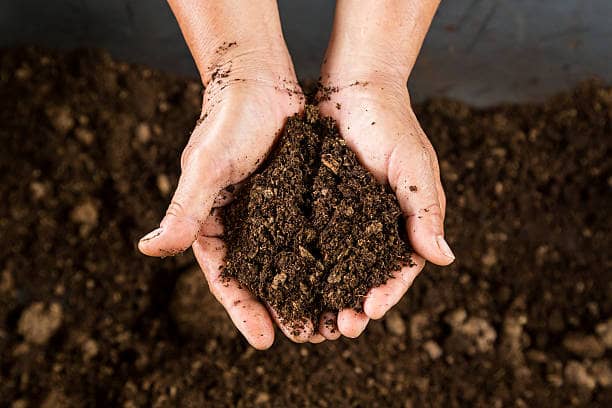Introduction
Farming has been a crucial part of human civilization for thousands of years. However, traditional farming practices often involve the use of chemical fertilizers that have negative impacts on the environment. The shift towards organic farming has gained momentum in recent years, which has led to the development and increased popularity of organic fertilizers
.
The Current State of Farming
Traditional farming practices rely heavily on chemical fertilizers to enhance soil fertility and crop yields. However, this practice has had a negative impact on the environment, with the chemicals leaching into waterways and causing pollution.
The Rise in Popularity of Organic Farming
With concerns over the environment and health, more people are turning towards organic farming practices, which relies on organic fertilizers to nourish the soil and crops.
Organic Fertilizers: An Overview
Organic fertilizers are derived from natural sources and are free from synthetic chemicals. These fertilizers are more sustainable compared to traditional fertilizers as they do not pose any adverse effects on the environment.

Definition of Organic Fertilizers
Organic fertilizers are fertilizers that are derived from natural sources such as animal waste, plant materials, and minerals.
Different Types of Organic Fertilizers
There are various types of organic fertilizers, including compost, manure, green manure, bone meal, and blood meal.
How Organic Fertilizers Benefit the Soil
Organic fertilizers provide essential nutrients to the soil, improving its fertility and structure, resulting in better crop yields.
The Benefits of Organic Fertilizers
Organic fertilizers offer numerous benefits for farmers, consumers, and the environment.
Increased Soil Fertility
Organic fertilizers enhance soil fertility by providing essential nutrients, improving soil structure, and increasing water-holding capacity, which leads to better crop yields.
Reduced Environmental Impact
Organic fertilizers do not contain synthetic chemicals and are biodegradable, which makes them safer for the environment.
Improved Crop Yields
Organic fertilizers provide essential nutrients that enhance crop growth and yields, improving the overall profitability of farming.
Increased Profit Margins for Farmers
Organic farming and the use of organic fertilizers can be more economical in the long run for farmers, with the potential of higher crop yields, lower input costs, and better market prices.
Challenges with Organic Fertilizers
Despite the benefits of organic fertilizers, there are some challenges in their use.
Cost and Availability
Organic fertilizers can be more expensive than synthetic fertilizers and may not be easily available in certain regions.
Lack of Standardization
The composition and quality of organic fertilizers can vary, which makes it challenging for farmers to determine which fertilizer will best suit their needs.
Slow Nutrient Release
Organic fertilizers release nutrients more slowly compared to synthetic fertilizers, which may cause slower crop growth and delayed yields.
Types of Organic Fertilizers
There are various types of organic fertilizers, each with its unique benefits and challenges.
Compost
Compost is made up of decomposed organic matter and is used to improve soil structure, fertility, and water retention.
Manure
Manure is animal waste that is rich in nutrients and can be used to enhance soil quality.
Green Manure
Green manure is made up of cover crops that are grown for the sole purpose of fertilizing the soil, improving soil structure, and increasing organic matter content.
Bone Meal
Bone meal is made from animal bones and is used to add phosphorus and calcium to the soil.
Blood Meal
Blood meal is made from animal blood and is used to add nitrogen to the soil.
Composting: An Essential Skill for Farmers
Composting is the process of breaking down organic matter to create a nutrient-rich fertilizer.
Composting 101
The basics of composting include selecting the right materials, creating the right conditions, and monitoring the process.
Benefits of Composting
Composting is an effective way of recycling organic waste and creating nutrient-rich fertilizer.
How to Compost
Composting requires a balance of materials, including green and brown materials, water, and air.
Manure as Fertilizer
Manure is a popular organic fertilizer that can be used to nourish crops.
Pros and Cons of Manure as a Fertilizer
Manure is an excellent fertilizer, but there are some disadvantages to its use, including the risk of bacteria and pathogens
.
Different Types of Manure
The commonly used types of manure include cow, pig, sheep, poultry, and horse manure.
How to use Manure Safely and Effectively
Manure should be properly stored and applied to the soil to prevent the risk of contamination and overapplication.
Green Manure: A Natural Way to Nourish the Soil
Green manure is a cover crop that is grown to enhance soil quality and nourish the soil.
Benefits of Green Manure
Green manure improves soil structure, adds essential nutrients, and increases organic content.
Types of Green Manure
Commonly used green manure crops include legumes, grasses, and brassicas.An image of each type of manure mentioned can be added to help readers identify the differences between them.

How to Use Green Manure in Farming
Green manure crops should be properly managed to optimize their benefits.
Bone Meal and Blood Meal: The Benefits and Risks
Bone and blood meal are popular organic fertilizers that offer unique benefits and challenges.
What are Bone and Blood Meals?
Bone meal and blood meal are made from animal bones and blood, respectively.
How Do They Benefit Soil and Plants?
Bone meal and blood meal are used to add essential nutrients, including phosphorus, calcium, and nitrogen to the soil.
Risks Associated with Using Bone and Blood Meals
Bone and blood meals may contain contaminants, including heavy metals and pathogens.
Other Organic Fertilizers
Other commonly used organic fertilizers include seaweed, fish emulsion, feather meal, and rock phosphate.
Comparing Organic Fertilizers to Traditional Fertilizers
Organic fertilizers offer numerous benefits over traditional fertilizers.
Environmental Impact
Organic fertilizers do not harm the environment, unlike traditional fertilizers, which can cause pollution and degradation.
Soil Health
Organic fertilizers improve soil health by enhancing its structure, nutrients, and water-holding capacity.
Nutrient Content
Organic fertilizers provide essential nutrients to the soil slowly, ensuring that the crops receive the required nutrients gradually.
Cost-Effectiveness
Organic fertilizers can be more cost-effective in the long run compared to traditional fertilizers as they enhance soil fertility and require fewer inputs.

The Future of Organic Fertilizers
Organic fertilizers are expected to play a significant role in the future of farming.
Technological Advancements
There will be continued research and development of organic fertilizers to make them more effective and sustainable.
Improved Research and Development
More research and development will go into organic fertilizers to optimize their effectiveness and benefits.
Increased Demand for Organic Food
As consumers become more aware of the benefits of organic food, the demand for organic fertilizers will continue to rise.
Case Studies
Several farms worldwide have had success in the use of organic fertilizers, indicating the potential benefits of organic farming.
Successful Farms Using Organic Fertilizers
Many farms worldwide, including some from developing countries, have had success using organic fertilizers.

Comparison of Organic and Traditional Farms
The comparison of organic and traditional farms highlights the benefits and drawbacks of each approach.
The Importance of Sustainable Farming
Sustainable farming practices ensure that farming practices are ecologically, economically, and socially sustainable.

The Benefits of Sustainable Farming
Sustainable farming practices increase profitability, protect the environment, and enhance social wellbeing.
How Organic Fertilizers Fit into Sustainable Farming Practices
Organic fertilizers are an essential aspect of sustainable farming practices, ensuring that farming practices are environmentally sustainable.
FAQs
Below are frequently asked questions about organic fertilizers.
Are Organic Fertilizers Safe for the Environment?
Yes, organic fertilizers are safe for the environment as they do not harm the environment through pollution and degradation.
Do Organic Fertilizers Work as Well as Traditional Fertilizers?
Organic fertilizers work effectively, offering numerous benefits, including enhanced soil fertility and slow nutrient release.
Are Organic Fertilizers More Expensive than Traditional Fertilizers?
Organic fertilizers can be more expensive than traditional fertilizers, but they are more cost-effective in the long run as they improve soil fertility and require fewer inputs.
Conclusion
Organic fertilizers offer numerous benefits, providing essential nutrients to the soil, enhancing soil fertility, and improving crop yields. Despite some challenges, including cost and availability, organic fertilizers offer a significant opportunity to revolutionize farming practices and pave the way for a sustainable future.




